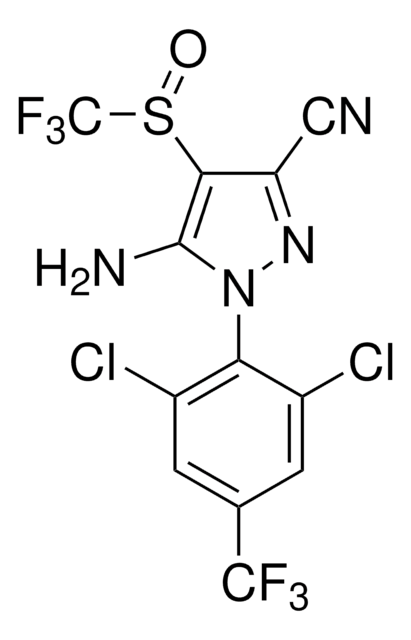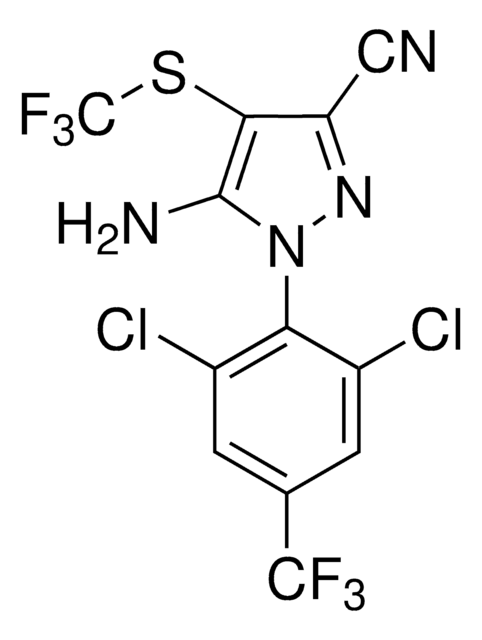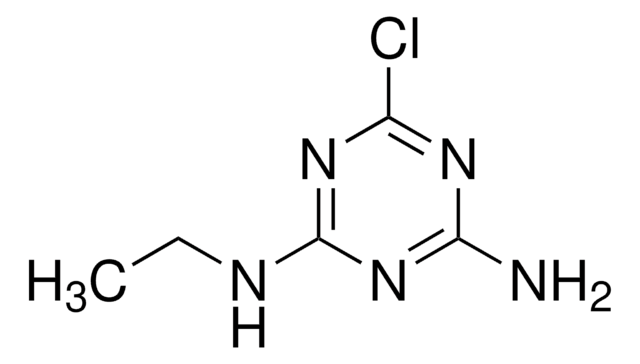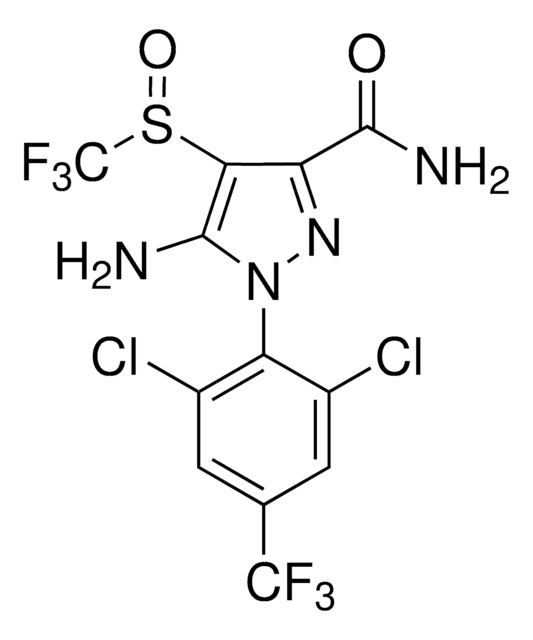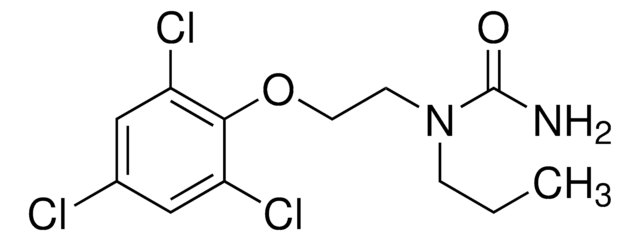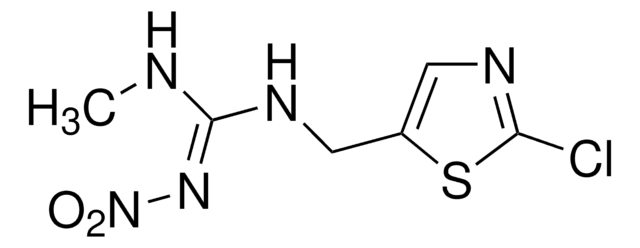41865
Fipronil-desulfinyl
PESTANAL®, analytical standard
Synonym(s):
5-Amino-1-[2,6-dichloro-4-(trifluoromethyl)phenyl]-4-(trifluoromethyl)-1H-pyrazole-3-carbonitrile
About This Item
Recommended Products
grade
analytical standard
Quality Level
product line
PESTANAL®
Assay
≥94.0% (HPLC)
shelf life
limited shelf life, expiry date on the label
composition
carbon content, 37.04%
hydrogen content, 1.04%
nitrogen content, 14.4%
technique(s)
HPLC: suitable
gas chromatography (GC): suitable
mp
189-190 °C
application(s)
agriculture
environmental
format
neat
SMILES string
Nc1c(c(nn1-c2c(Cl)cc(cc2Cl)C(F)(F)F)C#N)C(F)(F)F
InChI
1S/C12H4Cl2F6N4/c13-5-1-4(11(15,16)17)2-6(14)9(5)24-10(22)8(12(18,19)20)7(3-21)23-24/h1-2H,22H2
InChI key
JWKXVHLIRTVXLD-UHFFFAOYSA-N
General description
Application
Packaging
Recommended products
Legal Information
Not finding the right product?
Try our Product Selector Tool.
related product
Signal Word
Danger
Hazard Statements
Precautionary Statements
Hazard Classifications
Acute Tox. 2 Oral
Storage Class Code
6.1A - Combustible acute toxic Cat. 1 and 2 / very toxic hazardous materials
WGK
WGK 3
Flash Point(F)
Not applicable
Flash Point(C)
Not applicable
Choose from one of the most recent versions:
Already Own This Product?
Find documentation for the products that you have recently purchased in the Document Library.
Customers Also Viewed
Protocols
Test your food for fipronil contamination using our analytical standards, certified reference materials, solvents, and columns for analysis.
Test your food for fipronil contamination using our analytical standards, certified reference materials, solvents, and columns for analysis.
Test your food for fipronil contamination using our analytical standards, certified reference materials, solvents, and columns for analysis.
Test your food for fipronil contamination using our analytical standards, certified reference materials, solvents, and columns for analysis.
Our team of scientists has experience in all areas of research including Life Science, Material Science, Chemical Synthesis, Chromatography, Analytical and many others.
Contact Technical Service
